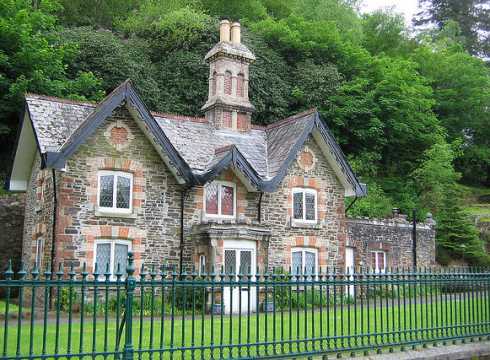
ENGLAND
UNDER WILLIAM THE CONQUERER
WILLIAM was a man of gigantic form, terrible, terrible strength, savage countenance, and desperate bravery. His revenge on his foes was cruel. His enemies confessed that no knight was his equal. When he at one time conquered the town of Alencon, he tore out the eyes of his prisoners and cut off their hands and feet and threw them into the town. He was a great lover of the deer, and delighted in hunting.
Before his coining, the people of England could hunt game and kill it for their own. When the Normans came, they would not allow any one but themselves or Saxon noblemen to hunt and kill wild animals. If a poor person killed one, they put out his eyes, or cut off his hand, or compelled him to pay a great sum of money.
This they called "The forest law." William turned the people out of a great many villages in Hampshire, pulled down their houses, and spoilt their gardens, to make a great forest for himself and the Norman barons to hunt in. That large portion of this county still remains a forest.
It is about eight or ten miles from Southampton, and is still called "The New Forest." He also took away from the Saxon earls and thanes (lords) houses and lands, and gave them to Norman Noblemen, who were called barons.
Instead of having a paid army, as England now has, William required these barons, in return for his gifts, to come with their servants to join him whenever he engaged in war.
The lands thus given to these barons were called feuds, and the king was called their feudal lord.
If any one of these barons had a larger amount of land than he could care for himself, he parcelled it out to gentlemen.
These were also called feuds, and the baron was feudal lord of these smaller barons. When the great barons received the land from the king, or the lesser ones from the great barons, each fell before his lord, kissed his hand, and promised to serve him.
With all the enactments of William there was one thing that he would not allow: no papal letters could be received within his realm save by his special permission.
While Gregory VII.,, the Hildebrand of history, was striking terror everywhere with his decrees, William was the one ruler who dared to repudiate his claim.
There was one great difficulty which was experienced in England after the Norman conquest. It was this:
All the Normans spoke French, and the English spoke the old Saxon language. It was difficult for them to understand one another. By degrees the English learned some of the French, and the French learned some of the Saxon; and so they mixed the two languages more or less together, and produced what is now called the English language.
When the Normans came over, they laughed at the long, low, wooden houses of the Saxons. These houses had a place for fire in the middle of the room, with a hole for smoke to escape in the top of the house. The Normans built castles and houses of stone like those in their own country, with a fireplace in one side, and a chimney. This was certainly a great addition to their comfort.
J. N. LOUGHBOROUGH